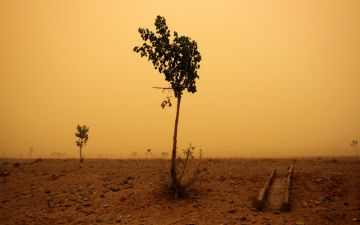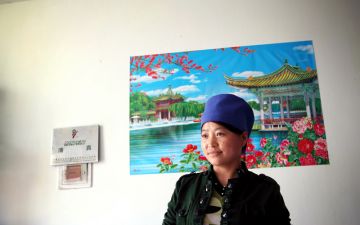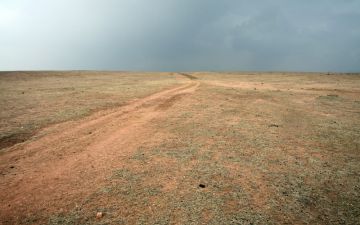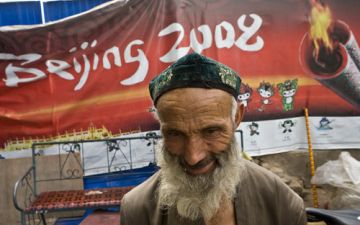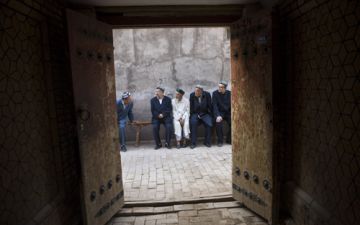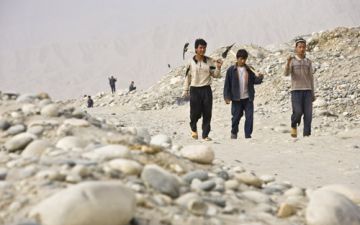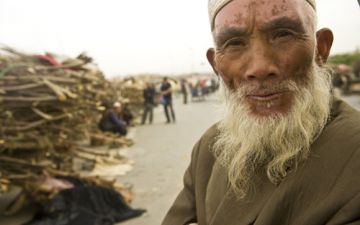China: Yellow Skies
You can smell a sandstorm. As I woke this morning, my throat was drier than normal and the smell of dust and sand had crept into my room whilst I was sleeping. I opened my curtains expecting to see the Yellow River out of my window but all I could see was a haze of yellow light.
Sandstorms have been one of the major problems as a result of desertification in China. As the spring winds blow, dry and degraded topsoil is picked up and thrown into the air to be carried in immense clouds of sand and dust.
